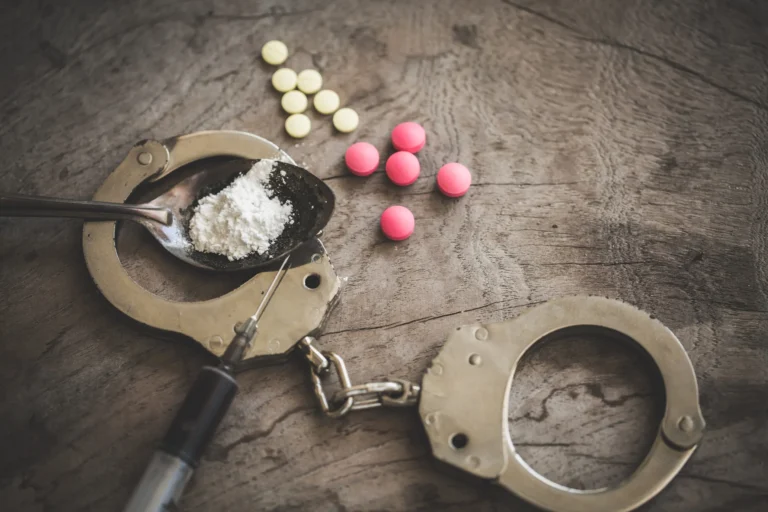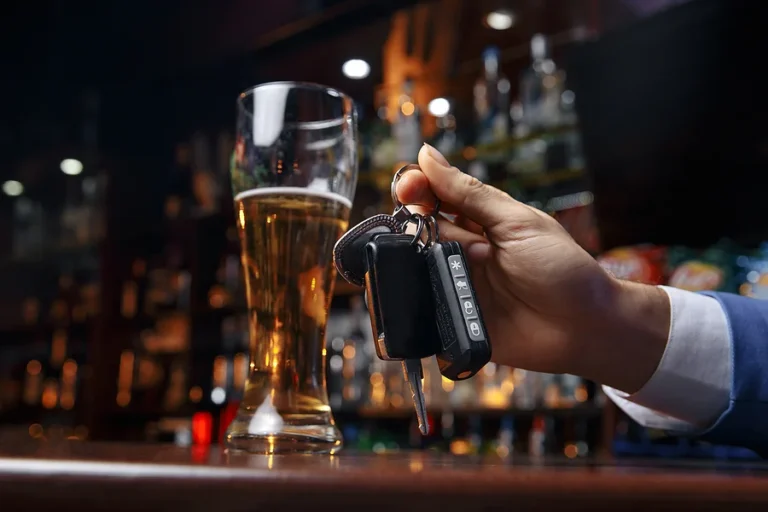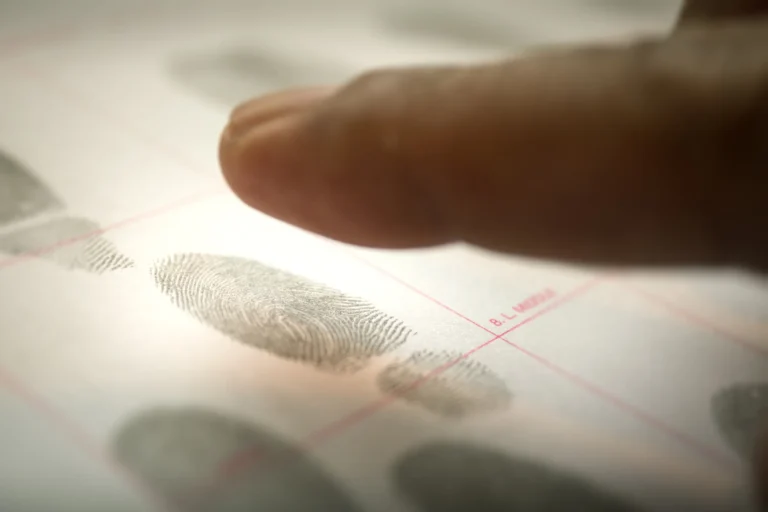The State of North Dakota has very little tolerance for drug offenses. Whether an officer pulled you over and found some marijuana in your car or you’re facing more severe charges, the penalties could be life-changing. You’ll need an effective, aggressive attorney to provide the best representation.
The attorneys with Sand Law have the experience and resources needed to help. We’ll work to reduce whatever penalties you may face or possibly eliminate your case. Our attorneys know how investigators and prosecutors work, and we’ll put that knowledge to use for your benefit.
Please use our online contact form to schedule a free case evaluation, or call 701-609-1510.
There were 3,606 arrests for drug violations in 2022 and 2,195 arrests for drug paraphernalia and equipment violations. Nearly 50% of all drug seizures involved marijuana and hashish.
The consequences you may face after a drug arrest in North Dakota depends on many factors. These include the type of drug involved, the amount, and more. If an officer arrested you for possessing less than an ounce of a drug, you could face a misdemeanor charge. But even though this doesn’t seem serious, it could still involve a stiff fine and a few days in jail.
Possessing more significant amounts of a drug could lead to decades in jail and fines that reach thousands of dollars. You may never get out of prison if your charge is a federal crime.
The three primary drug offenses in North Dakota are possession, distribution and manufacturing. The following is a brief look at each.
Possession usually involves a small amount of a drug for personal use. One example is having an ounce of marijuana.
This crime carries much more severe penalties since it typically involves a much more considerable amount of a drug. Since people don’t keep large quantities of illegal drugs for personal use, police assume they intend to distribute them.
Manufacturing is another serious crime with severe consequences. Examples include creating a meth lab, growing large amounts of marijuana and others.

The state of North Dakota classifies controlled substances, now known as illegal drugs, in one of five categories, or schedules. The smaller the number, the more severe the punishment for possession, distribution or manufacturing. The following is a list of some drugs that fall into the five schedules.
A charge involving drugs in these schedules carries a wide range of penalties, and here’s a quick look at just a few.
The penalties for possessing illegal drugs vary, depending on the drug and the amount. A first-time offender can face a year in jail and a fine of as much as $3,000. If the state has previously convicted you of possession, the penalties for subsequent offenses can carry felony punishments. A Class C felony, for example, carries a fine of up to $10,000 and five years in prison.
Many people refer to this as “possession with intent to distribute.” Again, it means having so much of a drug that it can’t possibly be for personal use. A distribution charge could result in a $10,000 fine or more and five years or longer in prison.
Manufacturing illegal drugs can carry a penalty of up to 10 years in prison and a $10,000 fine. A second offense can mean a minimum jail term of three years; the penalty is a mandatory 10-year sentence if convicted for a third time.
As you can see, the penalties associated with drug offenses can be harsh. That’s why you’ll need the best attorney you can find. A skilled lawyer will know several potential defense strategies and pursue every option on your behalf. Some of these strategies are listed below.
The officer may have entrapped you into committing a crime. Entrapment means they may have coerced you into possessing drugs or even threatened you. Undercover police will sometimes encourage people to perform an illegal act and arrest them. If this happened to you, there’s a chance your arrest could be wrongful – and your case could be dismissed.
Malicious intent is a defense that attorneys rarely use in drug cases, but it can be effective. You must prove that you didn’t possess or distribute the drug on purpose. You’ll also need to prove you honestly didn’t know you had a controlled substance. In some cases, defendants have successfully used this defense by proving someone substituted drugs without their knowledge. For example, the defendant may have intended to sell sugar, but someone switched that sugar for cocaine.
The Fourth Amendment to the U.S. Constitution protects all citizens against unlawful searches and seizures. If officials searched your home or car without probable cause or a warrant, prosecutors could exclude anything they found from your case. If that happens, the prosecution will very likely drop your charges.
Sand Law attorneys have successfully used these and other defenses to protect our clients’ rights. Schedule a free consultation by calling 701-609-1510 or contacting us online. We look forward to telling you more.
Accidents involving a drunk driver can be terrifying. When someone is drunk, they lose the ability to concentrate on their driving. They also have slower reaction times and are often confused. Picture someone swaying back and forth after having too many drinks. Now imagine that person driving. Clearly, driving while drunk is a bad idea. It can cause many problems, including fatalities, if the driver gets into an accident.
Every day, 30 people die in drunk-driving related car accidents in the United States. That means that every 50 minutes, one person is the victim of an accident like this. Because alcohol affects the brain, there’s a decrease in reasoning, thinking, and muscle coordination upon intoxication.
With a Blood Alcohol Concentration (BAC) of above .08 grams of alcohol per deciliter of blood, the chance of crashing is much greater. At lower concentrations, like .02 and .05, the body begins to feel warm and your mood begins to alter. You may have exaggerated behavior or loss of small muscle control, like focusing your eyes. After .08 grams your coordination becomes much worse. Drivers with this BAC will have a hard time detecting danger.
North Dakota is a hot spot for drunk driving accidents, with some of the highest rates in the country, alongside Texas and Massachusetts. In North Dakota, about 41% of traffic related deaths involve intoxication.
When someone drives drunk, a criminal case is made against them. In these cases the prosecutor will have to prove that the defendant is guilty of drunk driving beyond a reasonable doubt. This is a much higher standard than in a civil lawsuit. In a civil case, the evidence simply has to be better (and more credible) on one side than on the other.
In your civil lawsuit, you will need to prove that the driver was drunk and that their actions caused the accident. For example, if the driver was drunk but you caused the accident, you won’t win the case simply because they were drunk. You still need to be able to prove that their actions caused the accident.

It’s important to collect evidence for your lawsuit. The more evidence that you have, the better chance you have of winning your case. In your case, you can use the police report from the accident, evidence of the driver’s BAC, eyewitness testimonies, surveillance footage, photographs, accident reconstruction reports, and testimonies from people who witnessed the driver getting drunk, like a bartender.
An experienced lawyer will also be able to help you collect evidence, investigate, and gather statements from people who witnessed the accident. After your accident, you’ll want to document as much evidence as you can. This includes pictures of the crime scene and statements from witnesses, if you speak to anyone.
Settling a case is a big decision, and whether or not you settle depends on your own thoughts on the matter. If you don’t have a lot of injuries, your case will likely settle for $50,000 or less. If your injuries are more severe, you may not want to settle, as it may be hard to get the amount of money that you deserve from the insurance company. In most situations, insurance companies want to get out of cases without paying too much money. If they think they can get away with low-balling you, they will.
North Dakota is one of the few states that has a “no-fault” law. This means that even if someone causes an accident, they’re still able to get compensation for their own injuries. For no-fault insurance, you can’t claim pain and suffering or any other non-monetary damages. These damages are only available to the victim. However, the at-fault party may collect money for their lost wages and injuries.
If the drunk driver wasn’t convicted, it can become much harder to win your case. There are many reasons that the driver may not have been convicted. First of all, their blood alcohol concentration may have been lower than .08 grams. Although a driver may still be drunk, they’re not necessarily over the legal limit. This is why it’s important to gather evidence at the crime scene. If the driver isn’t convicted of a DUI, you’ll want to make sure you have enough evidence to prove they were still at fault.
If you’ve been in a car accident with a drunk driver, please contact our experienced lawyers at Sand Law. Our lawyers are standing by to help you get the compensation that you deserve. Our offices are located in Minot, Bismarck, Williston, and Watford City. DUI cases can be complicated, so it’s important to have a knowledgeable attorney on your side. For more information, or a free case evaluation, please contact us online or call us at 701-609-1510
The prospect of facing drug charges in North Dakota can be daunting because the penalties can include imprisonment, stiff fines, probation, and other sentencing terms. Aside from the impact of these forms of punishment, the consequences of a conviction of a narcotics charge can last long after you have served the formal terms of your sentence. A drug conviction can interfere with college loans, job prospects, promotions, occupational/professional licensing, immigration rights, and more.

Our North Dakota drug crime defense attorneys at Sand Law, PLLC have offices conveniently located throughout North Dakota to serve clients statewide, including locations in Bismarck, Minot, Williston, and Watford City. We provide effective representation in plea negotiations and criminal proceedings with the goal of keeping you out of jail or prison and preserving your standing in the community. Even if the prosecutor has a compelling case and strong evidence, we work diligently to obtain the best resolution in your case by engaging in a thorough analysis of discovery materials, which include witness statements, crime lab evidence, police reports, audio-video evidence, and more.
Although we engage in negotiations of potential plea agreements with the prosecutor, our attorneys are litigators and prepare our cases for trial. We take this approach so that prosecutors know we will not hesitate to force the state to prove its case beyond a reasonable doubt at trial. Our objective is to obtain the best possible outcome for you whether that entails a plea agreement, dismissal of the charges prior to trial, or a victory at trial.
While the consequences of narcotics conviction can be harsh, our thorough analysis of evidence, law enforcement procedures, forensic testing, and witness statements enables us to identify effective defense strategies that might include the following issues:
The charged offense, underlying facts, and circumstances of the cases might justify other defenses.
The attorneys that comprise our law firm are dedicated litigators committed to fighting for individuals facing the virtually unlimited resources and power of the government. Our clients retain us to handle cases ranging from misdemeanors to serious felonies at all stages of criminal proceedings. Sand Law, PLLC has earned a reputation for aggressive and effective defense of the rights of our clients as evidenced by a wide array of awards, reviews, and honors, such as:
The penalties for drug offenses like simple possession, possession with intent to deliver, manufacturing, sales, and cultivation can vary significantly based on the controlled substance (CS) at issue, the CS quantity, the offender’s criminal history, and other factors. Drugs are classified into five distinct Schedules under both North Dakota and federal law. Schedule I includes drugs considered to pose a high risk of abuse with no acceptable medical use. Schedule V drugs are on the other end of the spectrum with a minimal risk of addiction and some medical benefits. Examples of Schedule I-V drugs that are unlawful to possess without a lawful prescription are provided below.
Schedule I
Schedule II
Schedule III
Schedule IV
Schedule V

North Dakota state law makes it illegal to possess unlawful controlled substances like cocaine, LSD, opiates, and methamphetamine. This prohibition includes precursors used for the manufacture and cultivation of illegal controlled substances, as well as paraphernalia for the use of these drugs. While N.D. Cent. Code Section 19.03.1-23 (effective 8/1/19) makes a first offense of possession of a controlled substance a conviction punishable as a Class A misdemeanor, subsequent convictions constitute a Class C Felony. If the offense is committed within 1,000 feet of a school, the offense will be charged as a Class B Felony.
Although North Dakota has a medical marijuana law and has “decriminalized” possession of a small amount of marijuana effective 8/1/19, marijuana possession remains a criminal offense under federal law. Despite some misconceptions, non-medicinal use of marijuana has not been “legalized” within our state though possession of less than ½ ounce constitutes an infraction that will not result in jail time. Possession of a greater amount of marijuana constitutes a misdemeanor or felony drug possession depending on the amount:
½ ounce – 500 grams: Class B Misdemeanor punishable by a maximum of up to 30 days incarceration and/or $1,500
More than 500 grams: Class A Misdemeanor punishable by a maximum of up to 1-year incarceration and/or $3,000 fine
[See N.D. Cent. Code § 19-03.1-23 Effective 8/1/19]
The offense of possession with intent to deliver or distribute amounts to a much more serious criminal offense carrying harsher penalties. Generally, intent to distribute (also known as intent to deliver or intent to sell) will be charged as a felony based on a large enough quantity of the controlled substance or other evidence indicating an intent to distribute, such as large amounts of cash, scales, paraphernalia, and/or packaging materials.
A conviction with intent to distribute constitutes a Class B Felony when the controlled substance involves most Schedule I, II, or III drugs. Schedule IV drugs involve exposure to a Class C Felony while possession of Schedule V drugs constitutes a Class A Misdemeanor. [See N.D. Cent. Code § 19-03.1-23 Effective 8/1/19]. The criminal offense of intent to distribute is a serious crime that can result in a lengthy term of imprisonment and substantial fines for even a first offense. For example, a first conviction of possession with intent to distribute heroin can result in a penalty of up to 10 years in state prison and a fine up to $10,000.
Schedule I, II, and III Drug Paraphernalia
Many people charged with drug crimes also will face charges of possession of drug paraphernalia charges. Individuals charged with this offense should seek legal advice immediately because the law in this area is both complex and relatively ambiguous. North Dakota defines paraphernalia essentially to include any materials, products, or equipment that are used or intended for using or creating a certain drug. However, many innocent objects can be considered paraphernalia like tin foil, food scales, baggies, and cash.
Because the state legislature recognized that the statute is both vague and broad, it has amended the statute to include 13 categories of items. Since even this specification was too vague, the legislature then added a lengthy list of guidelines to use when evaluating the categories. The bottom line is that these struggles in providing a clear definition of paraphernalia create a lot of room for reasonable doubt, especially if the alleged offending material does not have drug residue and was not found near a controlled substance.
Until recently, you could be charged with a felony, but possession of paraphernalia to use a Schedule I, II, or III controlled substance (other than marijuana) is now charged as a Class A Misdemeanor. However, subsequent offenses can be charged as a Class C Felony.
When the paraphernalia is for the use or storage of marijuana, a first offense (beginning in August of 2019) constitutes an infraction subject to a fine but not jail time. However, repeat convictions can result in jail time depending on the specific circumstances.
If you are arrested for possession of a large quantity of a controlled substance, you could face federal charges related to drug trafficking. While a criminal prosecution related to drug charges is never a welcome experience, federal charges pose an especially perilous situation. Federal cases do not offer the same opportunities for lenient sentencing, diversion, and probation. Federal prosecutors also tend to be exceptionally skilled and served by powerful federal investigative agencies like the FBI, DOJ, DEA, and others with sophisticated law enforcement tools and technology at their disposal.
Although recent reforms have eased the hardships imposed by the federal sentencing guidelines and their mandatory minimum penalties, sentencing in federal courts continues to be much harsher than most state court cases. It is even possible to be charged with both state and federal charges. If you have been charged with a federal drug crime, you should speak to an experienced criminal defense attorney with experience fighting drug charges in federal court.

While the defenses discussed above might be available regardless of the charged drug crime, some specific defenses we might use if you are charged with simple drug possession charges and/or possession with intent include the following:
This defense pertains to marijuana-related charges, and the successful use of this defense can be tricky if you do not have a medical marijuana card. Sometimes we can effectively use this defense under these circumstances if you have a condition that medical studies have revealed can be effective for patients afflicted with certain health issues. The offense may also be applicable for substances such as Xanax if the defendant is able to produce a valid prescription.
Our North Dakota narcotics offense attorneys offer a fierce defense of the rights of those charged with drug crimes in cities and counties throughout North Dakota that include but are not limited to the following:
Facing drug charges can be overwhelming, but having an experienced drug crime lawyer by your side can make all the difference in protecting your rights and future. A skilled attorney can challenge the prosecution’s evidence, question the legality of searches, and uncover law enforcement errors. Whether you’re dealing with possession, intent to distribute, or federal drug charges, a lawyer can navigate the complex legal system to minimize penalties, reduce charges, or even achieve dismissal. Your future is too important to leave to chance—secure the right defense today.
If you or a family member has been charged with a drug crime or you have learned that you are the target of an investigation, we invite you to speak to one of our experienced drug offense lawyers at Sand Law, PLLC. We have the expertise, experience, resources, and proven results to fight for the best resolution of your case.
Drug charges are taken especially seriously in the state of North Dakota. First-time offenders with absolutely no criminal history can end up sentenced to time in the local jail or several years in prison. Those whose drug charges are considered federal offenses can potentially face even worse consequences with minimum sentencing being imprisonment. Sand law offers not only expertise and knowledge of criminal law but also years of experience defending against drug charges with success. Many criminal defense attorneys may make claims about their success and guarantee you the best protection possible. Don’t fall for these promises. Look at what really matters which is a firm’s history of case results. Sand Law can guarantee that our lawyers will give you award-winning legal counsel backed not by flashy promises but by the hard evidence of our past case successes earned through our hard work for clients we take seriously.
Call us today at 701-609-1510 or email us for a free consultation.